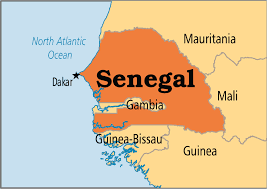APA – Dakar (Senegal) – The United Nations is “deeply concerned” by developments around human rights in Senegal where use of firearms by law enforcement officials to quell demonstrations has led to several deaths in recent weeks.
The deadly riots that took place in Senegal between 1 and 3 June, continue to provoke strong international reactions.
In a statement issued on Tuesday 13 June, the Office of the United Nations High Commissioner for Human Rights (OHCHR) called on Dakar to conduct an “independent investigation” into the shooting deaths of several demonstrators.
High Commissioner Volker Türk’s office said it had taken note of the Senegalese authorities’ decision to launch investigations into the deaths.
“We ask that these investigations be prompt, independent and thorough,” said OHCHR spokesman Seif Magango, quoted at a regular UN press briefing in Geneva.
The UN stressed that the aim is to ensure that anyone found responsible for “unnecessary or disproportionate use of force is held accountable, regardless of their status or political affiliation.”
In this regard, the OHCHR stands ready to assist in these investigations, the statement added.
OHCHR deplored use of firearms against demonstrators
From 1 to 3 June, Senegal witnessed its worst unrest in recent years after opposition politician Ousmane Sonko was sentenced to two years in prison for “corrupting the youth.”
The announcement of the sentence sparked violent unrest in which the official death toll was 16 although Amnesty International puts the number of those who died at 23.
The Office of the High Commissioner speaks of at least 16 people killed, 350 injured and more than 500 arrested during three days of demonstrations.
In its publication, the OHCHR also expressed its concern about the “continuing restrictions” on freedom of expression and peaceful assembly in Senegal.
Since the 3 June demonstrations, the authorities have refused to authorise at least two other gatherings, including those planned for last Friday and Saturday.
For the UN, it is the primary responsibility of the Senegalese authorities to uphold the country’s long-standing democratic traditions and respect for the rule of law.
OHCHR therefore called on Dakar to guarantee the rights to freedom of peaceful assembly and expression, as well as the right to information.
It must also ensure that journalists can exercise their profession freely and in complete safety, particularly in the run-up to the 2024 presidential elections.
Suspension of private TV channel Walfadjiri
“We are also concerned about the continuing restrictions on freedom of expression and peaceful assembly in the aftermath of the demonstrations,” the High Commissioner added.
He referred in particular to the case of Walfadjiri, a private TV channel that provided live coverage of the demonstrations and whose signal was suspended on 1 June “without clear legal justification and has not yet been restored.”
The government has also ordered the suspension of a crowdfunding campaign to support the Dakar-based press group “during the period when it cannot operate,” Mr Magango added.
In addition, the OHCHR expressed regret that access to mobile internet services was also restricted between 1 and 6 June.
These restrictions, which were justified by the government to put an end to “the dissemination of hateful and subversive messages, must be based on a law that is clear and accessible to the public,” the multilateral organisation said.
“These restrictions must be necessary to achieve a legitimate aim, as defined in human rights law, and must be proportionate to that legitimate aim and non-discriminatory,” it said.
The OHCHR reiterated its willingness to continue working with the Senegalese government, civil society and other partners to strengthen the protection of human rights in the West African country.
ARD/ac/lb/as/APA


